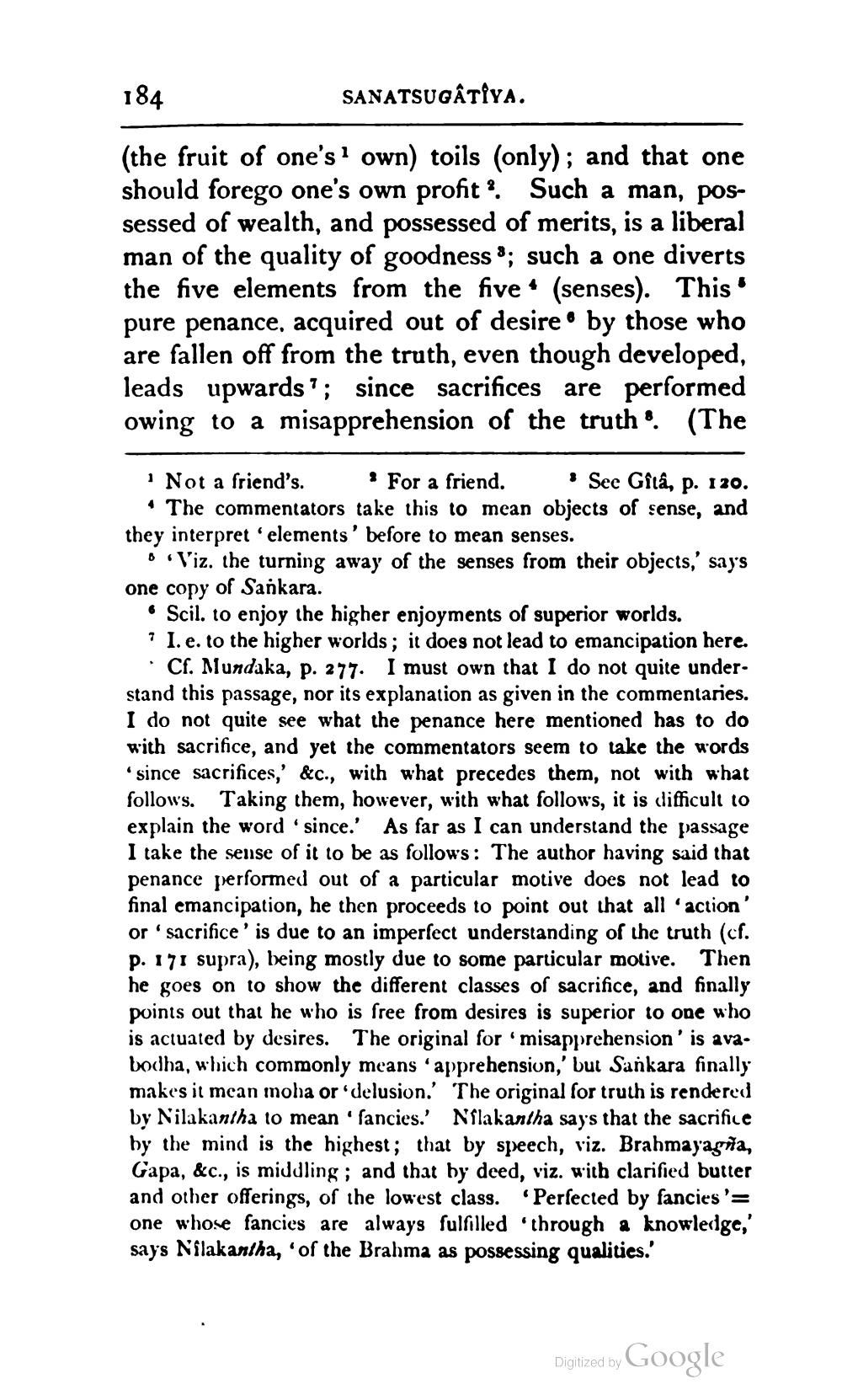________________
184
SANATSUGÂTiya.
(the fruit of one's own) toils (only); and that one should forego one's own profit? Such a man, possessed of wealth, and possessed of merits, is a liberal man of the quality of goodness 8; such a one diverts the five elements from the five* (senses). This pure penance, acquired out of desire • by those who are fallen off from the truth, even though developed, leads upwards?; since sacrifices are performed owing to a misapprehension of the truth. (The
Not a friend's. For a friend. See Gitâ, p. 120. • The commentators take this to mean objects of sense, and they interpret'elements' before to mean senses.
o Viz. the turning away of the senses from their objects,' say's one copy of Sankara.
. Scil. to enjoy the higher enjoyments of superior worlds. * I. e. to the higher worlds; it does not lead to emancipation here.
Cf. Mundaka, p. 277. I must own that I do not quite under. stand this passage, nor its explanation as given in the commentaries. I do not quite see what the penance here mentioned has to do with sacrifice, and yet the commentators seem to take the words
since sacrifices,' &c., with what precedes them, not with what follows. Taking them, however, with what follows, it is difficult to explain the word since.' As far as I can understand the passage I take the sense of it to be as follows: The author having said that penance performed out of a particular motive does not lead to final emancipation, he then proceeds to point out that all .action' or 'sacrifice' is due to an imperfect understanding of the truth (cf. p. 171 supra), being mostly due to some paruicular motive. Then he goes on to show the different classes of sacrifice, and finally points out that he who is free from desires is superior to one who is actuated by desires. The original for 'misapprehension' is ava. bodha, which commonly means 'apprehension,' but Sankara finally makes it mean moha or 'delusion. The original for truth is rendered by Nilakantha to mean 'sancies.' Nilakantha says that the sacrifice by the mind is the highest; that by speech, viz. Brahmayagña, Gapa, &c., is middling; and that by deed, viz. with clarified butter and other offerings, of the lowest class. "Perfected by fancies '= one whose fancies are always fulfilled through a knowledge,' says Nilakantha, 'of the Brahma as possessing qualities.'
Digitized by Google




